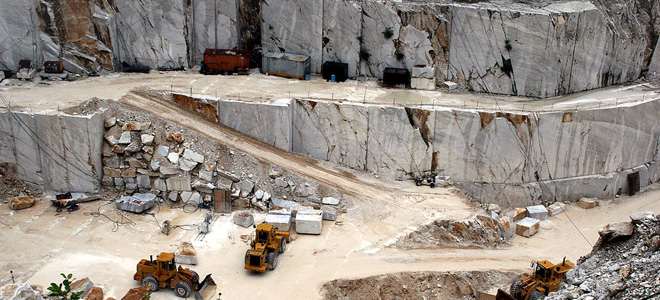ISLAMABAD: As the government has reportedly agreed to allow a duty waiver on marble products from China under the second phase of Pakistan-China Free Trade Agreement (FTA), businessmen associated with the marble industry are worried about their future.
According to traders, and exporters of marble and tiles, Pakistan is likely to give free market access to China for various products including marble and granite under the second phase of FTA. The domestic industry, especially located in smaller provinces of the country, will collapse.
Talking to Pakistan Today, Chairman All Pakistan Marble Mining Processing Industry and Exporters Association, Sanaullah Khan said despite the fact that the marble industry in Pakistan enjoys no support from the government for its existence and development, the government is about to eliminate all those protective shields in order to meet Chinese demands in the ongoing negotiations on FTA.
“I am surprised that a country like India where the economy is on very strong footings has never allowed such relaxation to any country. Though the industry has taken a sigh of relief following increase in construction activities in the country, the move to relax duties on import of marble products will definitely ruin the expectation of growth in exports as well as domestic production,” he said adding that the ministries concerned should revisit their decision related to duty waiver and consult the stakeholders before signing the revised FTA.
According to him, the industry is already facing multiples issues including a higher cost of electricity in the country. The electric supply and its rates in Pakistan are quite high as compared to India, Bangladesh and China. Apart from providing cheaper electricity, the said countries also assist the industry in developing quarries, roads and freight services. In Pakistan, it is the miners who perform all without the help of the government. “Our industry is totally ignored and placed under tremendous pressure. This new regime will allow industrialists to invest their energy and money in the import of tiles and slabs from China rather than working on their indigenous industry and its products which will ultimately trigger further unemployment, wastage of resources and deteriorate the balance of trade,” said Sanaullah.
According to him, the existing first phase of FTA with China has already caused the drop in export by 50 per cent (which is measurable) besides the closure of factories. The generation of revenue through export of marble has also been decreased by 50 per cent after increased imports from China post-agreement.
The government should see the numbers and then decide what is best in the long-term interests of our marble sector. All the relevant quarters need to seriously take up this issue on all forums to avoid the reduction of duties and taxes on all the imports of tiles and marble products from China.
Comparing the facilities extended in Pakistan with what India and China provide to their marble industries, he claims, India provides 1.50 per cent costs of road construction to the quarry, electricity tariff rates vary from state to state in which minimum is Rs4.5 per unit and on the higher side in one or two states it is Rs7; the average per unit is below Rs6 per unit. The Indian government also provides uninterrupted electricity supply and infrastructure for the marble industry.
Apart from India, China offers the following facilities to its dimensional stone industry. Electricity tariff rates are per unit Rs12, Chinese government provides 9 per cent rebate on all dimensional stone exporters, it also ensures uninterrupted electricity supply, and offers 100 per cent road construction to the quarry if the village council requests it from the government.
However, in Pakistan the marble industry is charged Rs24 to Rs26 per unit for electricity amidst zero facilities.




